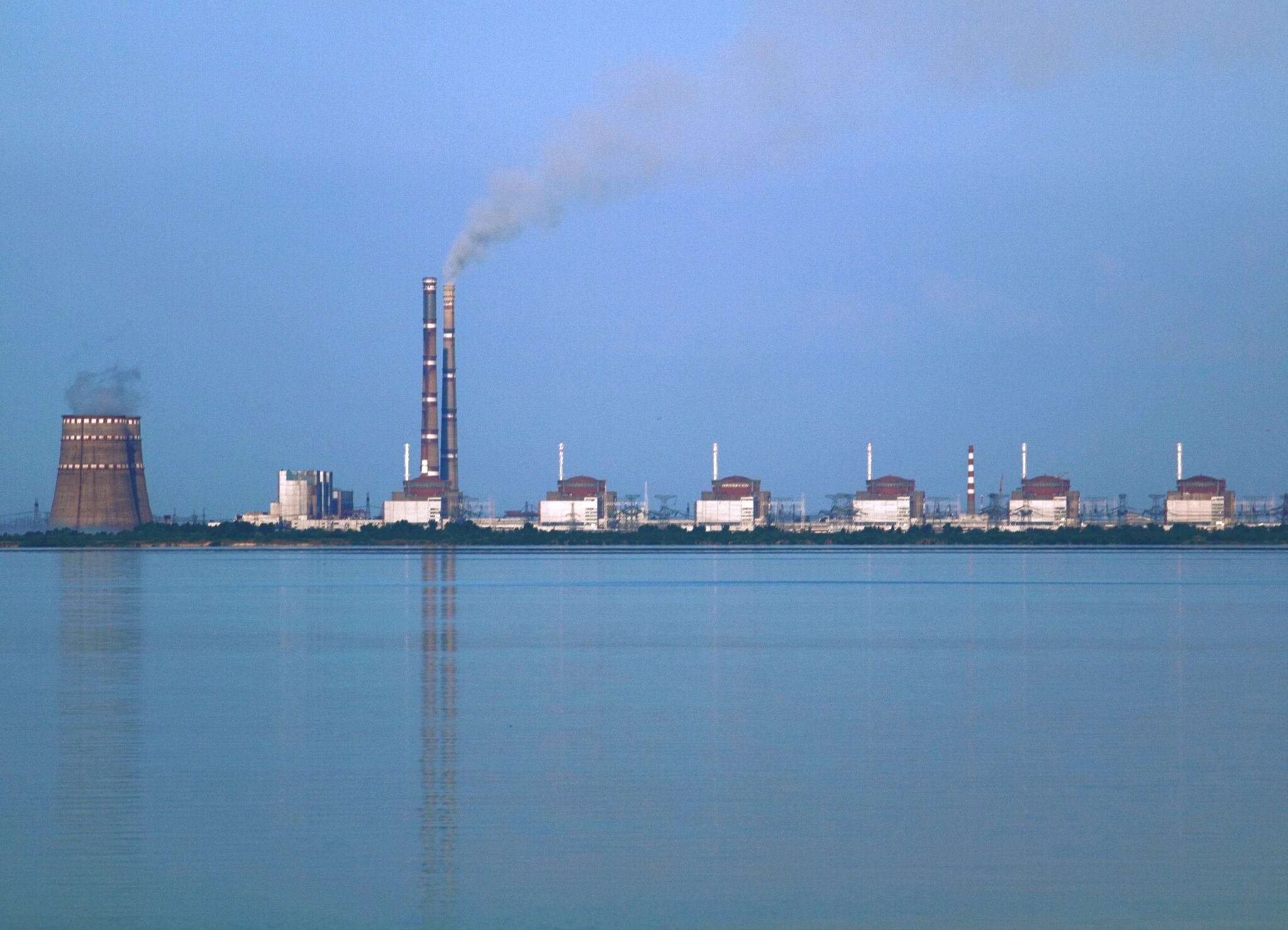It is Russia that wants to frighten Europe with a nuclear disaster and the second Chernobyl, because in the long term, moving away from nuclear energy will increase the demand for fossil fuels and their prices, which, of course, is on Russian Federation’s mind – Energy Forum expert Maciej Zaniewicz comments on the seizure of the Zaporozhye NPP by the Russians in an interview with BiznesAlert.pl.
BiznesAlert.pl: Russians entered the Zaporozhye nuclear power plant, from where they conduct artillery shelling on Ukrainian positions. The Ukrainians cannot aim at the facility, because it could cause a disaster. In this situation, can we say that the Russians treat this facility as a shield?
Maciej Zaniewicz: Since March, when the Russian army occupied the site of the Zaporozhye nuclear power plant, we have been witnessing the process of militarization of the facility. First, it was turned into a military area, which is a violation of all security procedures. Never in history have we faced such behavior, it is an absolute precedent. Unfortunately, one of the elements of militarization is to bring heavy equipment to the facility and its immediate surroundings. Such a situation is extremely convenient for the Russians, because they can fire on the neighboring Nikopol through the Kakhovsky Reservoir, certain that Ukrainians won’t respond. Ukraine acts responsibly and does not fire at the power plant. From a nuclear safety perspective, there is no threat at this point. Nevertheless, the Russians regard this responsibility as a weakness.
What risks exactly would a hypothetical Ukrainian attack on these positions involve?
There is no use in guessing, because the Ukrainians will not do it. There have been precision drone attacks on units located at a safe distance from the power plant. Russia wants to frighten Europe with a nuclear disaster, another Chernobyl, because in the long term, moving away from nuclear energy will increase the demand for fossil fuels and their prices, which, of course, is what the Russian Federation wants. However, we must remember that the risk is very low, nuclear power plants are built in such a way that the safety enclosures covering the reactor could withstand even the impact of an aircraft. A much greater danger may result from the fatigue of the crew that operates the reactor, as also reported by the International Atomic Energy Agency (IAEA).
How could the West respond to such a situation?
Unfortunately, at the moment, the actions of western countries in this matter cannot be effective – pressure is already exerted, including by the IAEA. From the moment the Zaporizhzhya NPP was seized, this organization has been opposing such actions, it criticizes them, and, above all, demands that IAEA employees get access to the power plant, which Russia is refusing. There is no diplomatic way for the soldiers of the Russian Federation to withdraw from the Zaporozhye nuclear power plant.
Is it possible to expect that after the Russians leave the plant, it will be destroyed and looted the same way as the Chernobyl power plant recovered by the Ukrainians?
It is difficult to say, it must be remembered that this reactor was built on the basis of Russian technology, therefore any failures would affect the reputation of Rosatom itself. I believe that this is an argument for the fact that this is unlikely to happen. It is safe to say that the Zaporozhye nuclear power plant would be handed over to Ukraine through diplomacy rather than military means. It would have to be a process overseen by the IAEA for the international community to have control over what happens there. It will certainly not be possible to do this at a bilateral level. However, it will surely be a very important point in the talks on ending the war between Russia and Ukraine.
What are the economic prospects for the Ukrainian nuclear power plants, most of all, the Khmelnytsky power plant, from where energy is to flow to the European Union?
Expansion of energy connections between Ukraine and the European Union is crucial not only in terms of the Khmelnytsky power plant, but in general from the point of view of transformation and stability of Ukraine’s energy system. Since the beginning of the war, the demand for electricity in Ukraine has fallen from about 18-20 GW to approx. 10 GW. This led to the need to reduce production from renewable energy, due to the inflexibility of the system, as well as from the atom. Building connections and increasing the possibility of exporting electricity from Ukraine to Europe would open up the possibility of supporting Ukraine not only through loans and subsidies, but also through trade in a product that is needed in Europe. Energy from Ukraine is sustainable – 70-80 percent is produced in an emission-free way. It is also cheap and available at hand, and we are missing it at the moment. This will benefit all sides in the short- and long-term.
Interview by Michał Perzyński









